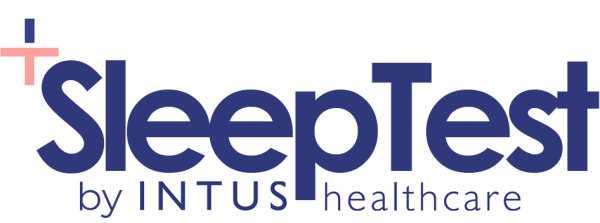Choking During Sleep – Symptoms & Causes
Waking up suddenly during the night gasping for air or choking on your saliva can be a distressing event to experience and worse to observe. If this is a regular occurrence, it is important to identify the cause and find a suitable treatment.
Waking Up Choking In Sleep
Choking in your sleep or waking up gasping for air is caused by the relaxation of soft tissue in the neck, obstructing airflow to your body. As your airway collapses, the air is unable to reach the lungs effectively; this results in you waking up suddenly gasping for air or waking up choking on your saliva.
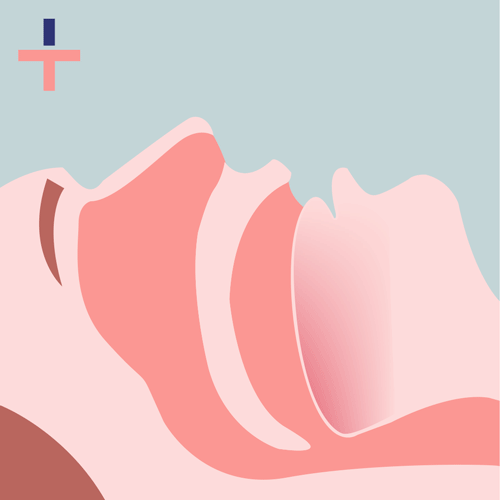
Conditions That Can Cause Choking In Your Sleep
Sleep Apnoea
If you experience frequent choking in your sleep, you likely have Obstructive Sleep Apnoea. Sleep Apnoea is a sleep disorder characterised by brief interruptions in breathing during sleep. The most common type is Obstructive Sleep Apnoea (OSA), where the airway becomes partially or completely blocked, leading to pauses in breathing. When the airway is blocked, the oxygen levels in the blood can drop, causing you to wake up choking or gasping for air as the body responds to the lack of oxygen.
You may wake with shortness of breath that corrects itself quickly, or you might snort, choke or gasp as you catch your breath. The pattern of repeatedly waking can repeat itself 5 to 30 times or more each hour, all night long. These disruptions impair your ability to reach deep, restful sleep, and you’ll probably feel sleepy during your waking hours.
Choking or gasping during sleep is often reported by a bed partner, triggering a person to understand the root cause of why they’re choking while asleep. Studies have shown that approximately 2.5 million individuals have undiagnosed OSA in the UK(1).
It has been found that up to 13% of adult men and up to 6% of adult women have moderate or severe OSA (2). Being overweight increases the risk of developing OSA, and it is present in approximately 40% of obese individuals (BMI> 30.0 kg/m2) (3).
Risk factors for the condition include older age, being male, having a large neck circumference, a family history of Sleep Apnoea, obesity, and certain medical conditions like hypertension.
In addition to waking up choking, other common symptoms include:
- Excessive daytime tiredness – Due to disrupted sleep, people with Sleep Apnoea often feel excessively tired and fatigued during the day.
- Loud and constant snoring – Often, OSA is associated with loud and persistent snoring.
- Anxiety and depression – Decreased sleep quality is connected to mental health conditions.
- High blood pressure – The repeated breathing interruptions can spike blood pressure.
- Headaches (particularly in the morning) – Frequent morning headaches can result from decreased oxygen levels during sleep.
- Irritability and difficulty concentrating – Poor sleep quality can lead to mood swings and difficulty focusing.
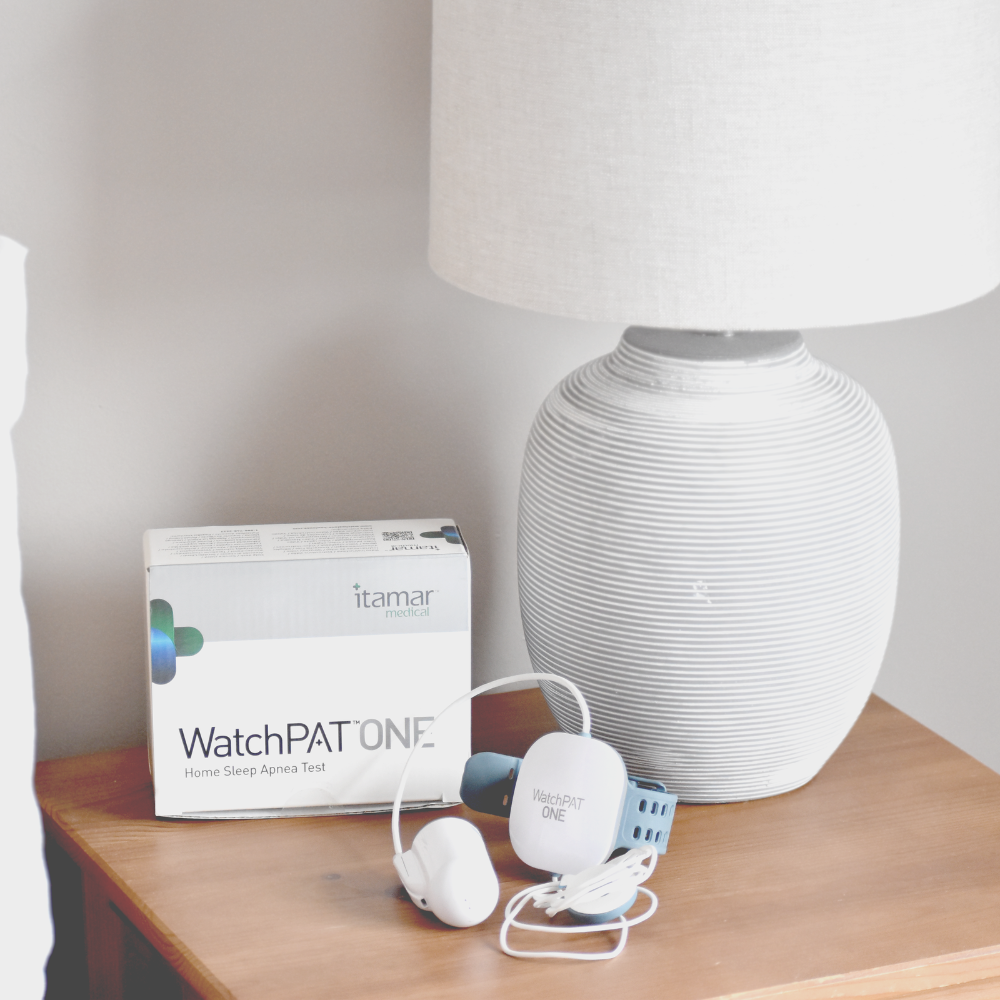
Sleep Apnoea Testing
If you suspect you have Sleep Apnoea or are experiencing any of these symptoms, it’s essential to seek medical attention. A sleep study, usually conducted in a sleep clinic or at home, can confirm if you have the condition.
Our In-Home Sleep Test can quickly and accurately rule out or confirm the presence of OSA. If it is confirmed that you have the condition, you can start treatment. An In-Home Sleep Study is a reliable alternative to the NHS sleep clinic, providing you with results in two working days.
GERD and Acid Reflux
GERD stands for Gastroesophageal Reflux Disease, and it is a chronic digestive disorder that occurs when stomach acid flows back into the oesophagus. The oesophagus is the tube that connects your throat to your stomach. Normally, a ring of muscles called the Lower Oesophageal Sphincter (LES) acts as a one-way valve, allowing food and liquids to enter the stomach and preventing stomach contents from flowing back into the oesophagus. In individuals with GERD, the LES may weaken or relax abnormally, leading to acid reflux.
Choking on acid reflux while sleeping
During sleep, especially when lying flat, the risk of acid reflux and aspiration (inhaling stomach contents into the airway) may increase. Aspiration of stomach acid or partially digested food can lead to choking, coughing, or gasping for air as the body responds to the foreign substance in the airway.
Common symptoms of GERD / acid reflux:
- Heartburn, usually after eating or when lying down to sleep.
- Regurgitation of your food or a sour liquid.
- Difficulties swallowing (dysphagia).
- Chest pains or upper abdominal pain.
- The feeling of a constant lump in the throat.
- A persistent cough.
- Laryngitis is an inflammation of the vocal cords.
- Asthma, which may be new or getting worse.
Risk factors for the condition include hiatal hernia, obesity, pregnancy, smoking and certain foods and drinks.
Can you die from acid reflux in your sleep
No, there are no reports of someone dying from acid reflux during sleep. However, acid reflux can contribute to developing Sleep Apnoea which is associated with many other health conditions when left untreated.
It’s important to note that not everyone with GERD will experience choking during sleep, and the severity and frequency of symptoms can vary from person to person. GERD and Sleep Apnoea can also occur simultaneously, and many patients with OSA can also develop chronic acid reflux.
If you suspect you have GERD or are experiencing symptoms, it’s essential to seek medical advice for proper diagnosis and to access personalised treatment recommendations.
Treatments for Choking in Sleep
The treatment options available to reduce or completely prevent choking when you sleep vary based on the severity of the condition. The first step you should take is to adjust your sleeping position at night to avoid sleeping on your back, as this can increase the risk of the soft tissue causing a blockage. You may also want to consider modifying your lifestyle by reducing your alcohol intake, avoiding smoking and maintaining a healthy diet.
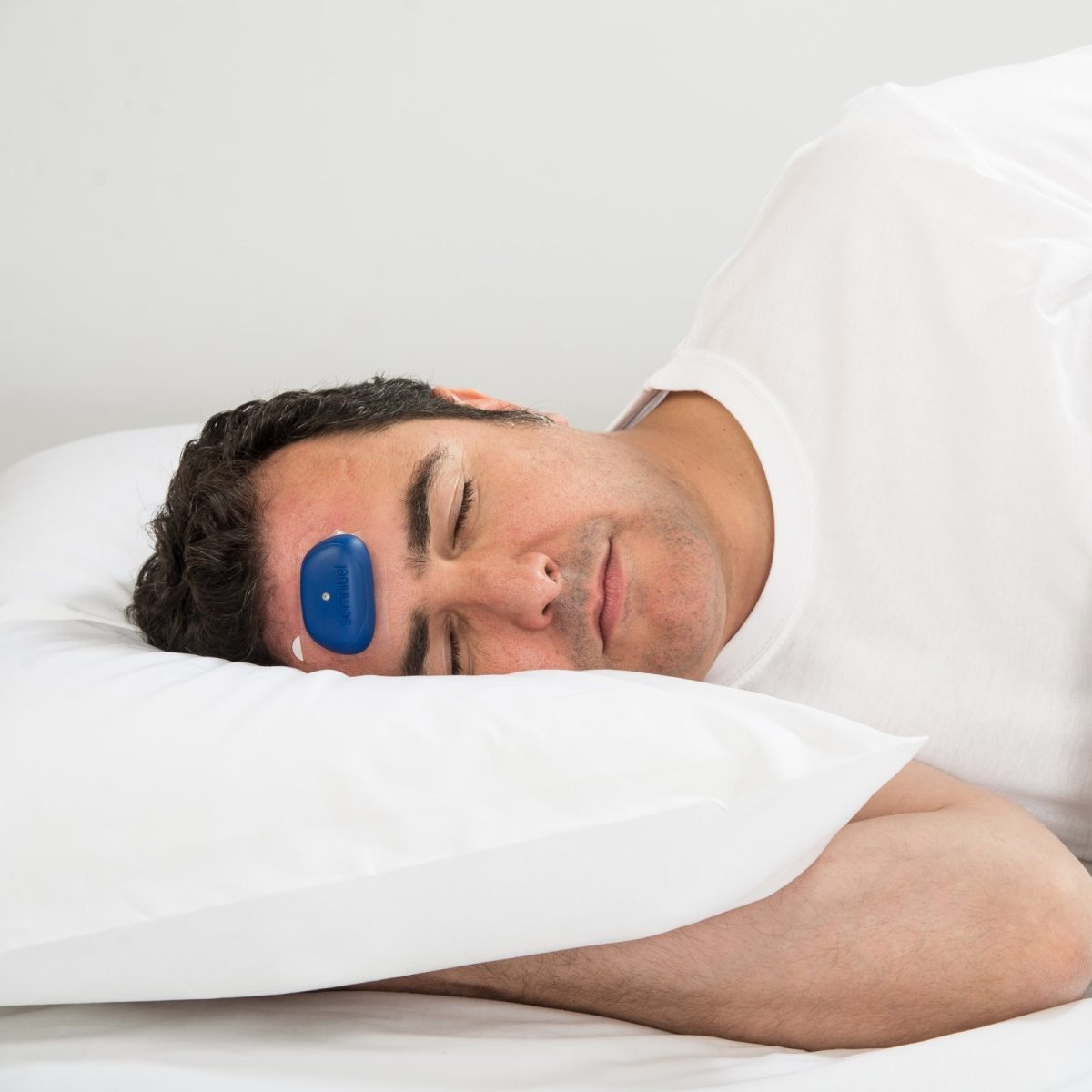
1. Positional Therapy
Positional Sleep Apnoea occurs more frequently when lying on your back. Positional Sleep Therapy devices can be worn around your back, waist or on your forehead to encourage you to sleep on your side.
One such device is the Somnibel Positional Therapy device. This small device is placed on your forehead and will vibrate whenever you roll onto your back. The vibration reminds you to roll over and, over time, encourages the wearer only to sleep on their side instead.
Many people use Positional Therapy in addition to other treatments.

2. Nutrition, lifestyle and weight loss
If appropriate, a nutrition and weight-loss program can often relieve symptoms. Living a healthier lifestyle has been found to have a positive effect on sleep disorders and other health issues (4). A direct link between excess weight and both OSA and snoring severity has been shown, so if you are overweight, you may find that weight loss improves your symptoms. Different foods can affect your sleep, and some can even help you sleep better.
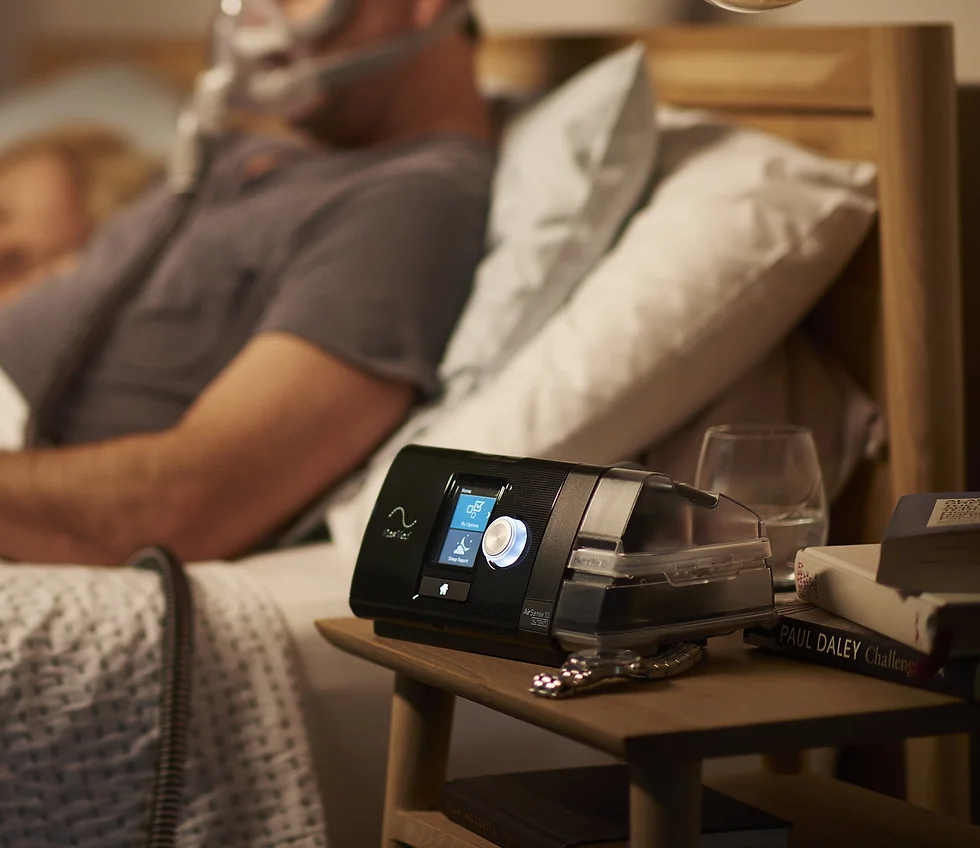
3. CPAP Therapy
CPAP therapy is the most common and effective treatment for Obstructive Sleep Apnoea (OSA). A CPAP machine provides continuous air pressure to the user through a tube and CPAP mask. This keeps the airway open and prevents pauses in breathing throughout the night. CPAP treatment will stop choking in sleep and allow you to have good quality and restorative sleep again.
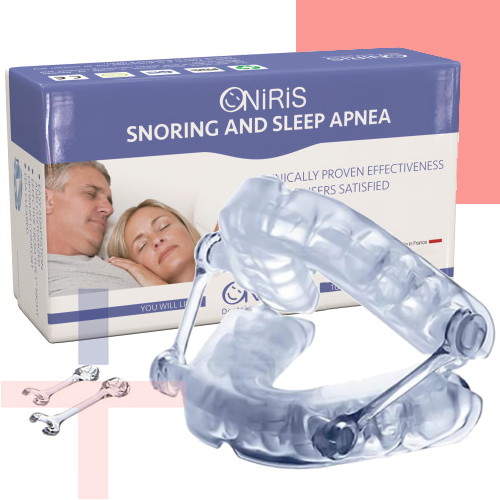
4. Mandibular Advancement Device (M.A.D)
A Mandibular Advancement Device is a dental appliance, similar to a gum shield, which is worn in your mouth while you sleep. The device is designed to gently pull your lower jaw and tongue forward, creating more space at the back of the throat preventing apnoeas and snoring from occurring.
Summary
Continuously waking up choking can leave you feeling fatigued and puts you at risk of developing further help problems. Getting to the bottom of your symptoms is essential; if you would like any advice, then don’t hesitate to get in touch with us.
References
- NICE (2021) Overview: Obstructive Sleep Apnoea/hypopnoea syndrome and obesity hypoventilation syndrome in over 16s: Guidance, NICE. National Institute for Health and Care Excellence. Available at: https://www.nice.org.uk/guidance/ng202. (Accessed: October 21, 2022).
- Sleep Matters (ed.) (2020) HOW MANY PEOPLE IN THE UK HAVE OBSTRUCTIVE SLEEP APNOEA (OSA)?, The Sleep Apnoea Trust. SLEEP MATTERS. Available at: https://sleep-apnoea-trust.org/research/. (Accessed: October 20, 2022).
- Vgontzas, A.N. (1994) “Sleep apnea and sleep disruption in obese patients,” Archives of Internal Medicine, 154(15), pp. 1705–1711. Available at: https://doi.org/10.1001/archinte.154.15.1705. (Accessed: October 21, 2022).
- Kaleelullah, R.A. and Nagarajan, P.P. (2021) “Cultivating lifestyle transformations in obstructive sleep apnea,” Cureus, 13(1). Available at: https://doi.org/10.7759/cureus.12927. (Accessed: October 21, 2022).
